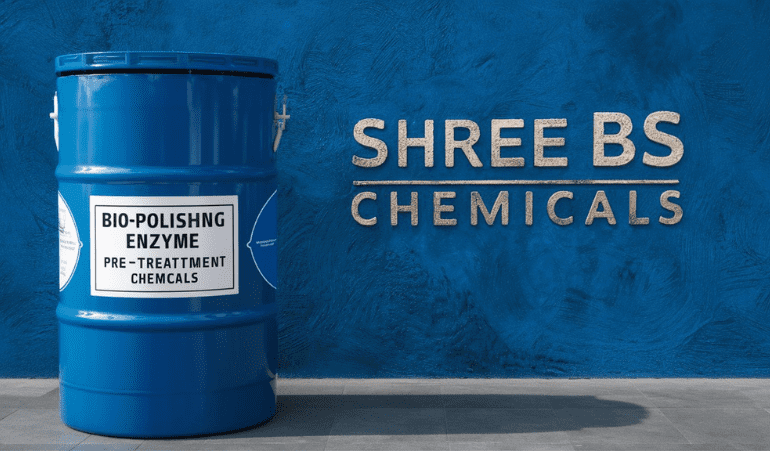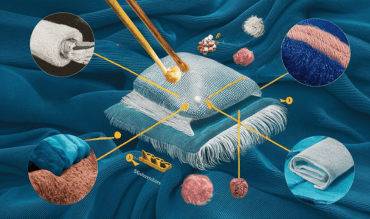-
-
Mon - Sat 9:00 AM - 6:30 PM
-
Plot No. 366, Shree BS Chemicals, Sector 29, Part 2, Panipat, Haryana
Biopolishing Enzyme (Textile Chemical)

Biopolishing Enzyme
Biopolishing is a finishing process in textile that enhances fabric quality by decreasing the pilling tendency and fuzziness of (cellulose) knitted fabrics. This finishing process applied to cellulose textiles that produces permanent effects by the use of enzymes. This process removes protruding fibers & slubs from knitted fabrics, significantly reduces pilling, softens fabric hand and provides a smooth fabric appearance.
Biopolishing enzymes are used in the textile industry to remove pilling tendencies and give fabrics a perfect finish.
The bio-polishing process targets the removal of the small fiber ends protruding from the yarn surface and thereby reduces the hairiness or fuzz of the fabrics. The hydrolysis action of the enzyme weakens the protruding fibers to the extent that a small physical abrasion force is sufficient to break and remove them. Bio polishing can be accomplished at any time during wet processing but is most convenient performed after bleaching.

Why is Biopolishing Enzyme Used in Textile Industry?
-
Accelerate reactions
-
Are safe and easy to control
-
Can replace harsh chemicals
What is Biopolishing Enzyme?
A finishing process that improves the quality of cellulose knitted fabrics by reducing pilling and fuzziness.
What are the benefits of biopolishing enzyme?
Biopolishing with cellulase enzymes can be used on cotton, flax, hemp, viscose, and lyocell protruding fibers. It can improve the anti-pilling property, create a better surface, and provide superior softness.
